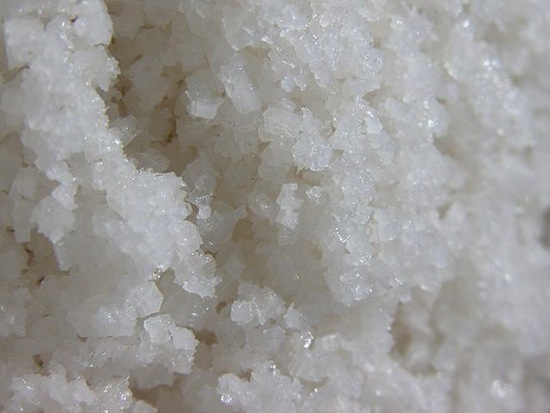In my previous post about salt I talked about the dangers of not eating enough salt. As usual, it is the exact opposite of what our prominent health officials recommend. Plenty of research shows that a low salt diet can be very detrimental to health. Around the world, people eat between 8 and 10 grams of salt a day.
If the research shows that low salt diets are dangerous, why is there a low salt agenda in the first place and who is proposing this?
Who sets the standards?
According to Mr. Satin, there are several prestigious institutes that are responsible for the salt guidelines. These include, the Institute of Medicine, the Center for Disease Control, and the National Heart, Lung and Blood Institute (NHLBI) to name a few. These are the research organizations that set the standard.
Then there are the activism organizations such as the World Action on Salt and Health (WASH) and the Consensus Action on Salt and Health (CASH). Although there is not money laundering involved (WASH/CASH, lol), not surprisingly, these organizations have many of the same people involved, who are doing the research.
WASH is the world’s leading group of anti-salt players. Their primary agenda is to reduce the intake of salt around the world. Some of their members are paid (by taxes) employees of the CDC.
Are the words conflict of interest ringing in your ears yet?
Out of the hallowed halls of these exalted institutes comes the anti-salt agenda. These brilliant researchers have ignored the predominant research which clearly indicates that reducing salt makes very little effect on blood pressure and may, in fact, be harmful.
According to Mr. Satin, there have been 8 meta-analyses studying salt and only 2 out of the 8 support salt reduction.
Corrupt System of Guidelines
According to Mr. Satin, the chairman of the DRI’s (Dietary Reference Intakes) was asked to create the guidelines in 2000, which he did. In 2005 the chairman was asked to review his own guidelines. He liked them, but he went ahead and lowered the recommended salt intake. In 2010 the chairman was then asked to review his guidelines again. He liked his guidelines again, but he went ahead and lowered them again.
How did they set the guidelines?
The Intersalt study was a huge multifaceted study that looked at the relationship between salt intake and blood pressure. The researchers concluded that high salt intake is “… causing the unfavorable population-wide blood pressure pattern that is a major risk factor for epidemic cardiovascular disease.”
However, according to Morton Satin, their statistics were skewed.
There are four outliers to this data — groups of people that skewed the data. One of these groups are the Yanomami Indians. They never get high blood pressure.
The Yanomami were included in the data and this skewed the results. Their inability to develop high blood pressure has nothing to do with salt — it has to do with their genotype.
Outliers to the bell curve
The Yanomami are an indigenous tribe (also called Yanamamo, Yanomam, and Sanuma) made up of four subdivisions of Indians which live in the tropical rain forest of Southern Venezuela and Northern Brazil. They live in the rain forest which is an environment that lacks salt. Interestingly, they are genetically enabled to not get hypertension even though they have chronically high levels of RAS. However, they have low longevity.
The Yanomami, on their obligate low salt diet, have been used to set the guidelines.
More Studies with questionable interpretations of data
Rose populations indices (Geoffrey Rose) were also used to determine guidelines. Rose suggested that we drop the entire public blood pressure by 2 points, because the risk is across the entire population rather being isolated to a high risk group. Many have criticized that strategy. Mr. Satin jokingly said ” … sure, dropping the entire population blood pressure by 2 points, multiplied by millions is a lot of points…”.
Can it get any more ridiculous? In this strategy they are ignoring the target risk group for high blood pressure, and rather than giving them specific treatment if necessary, they are bringing in the entire population for unnecessary interventions.
Health bureaucrats are looking at blood pressure, but we need to look at overall health and the effects of low salt on that. It’s a case of focusing in on one risk factor and never looking at the consequences of that intervention. It’s like using a medication that helps the condition but kills the patient.
Hypertension is driven by genetics (among other things), not salt.
A few individuals in a big institution
All the models that are predictive in showing that the reduction in blood pressure is beneficial, were based on blood pressure reduction, not salt reduction. People can increase their fitness level through exercising and this would show a benefit in lowering blood pressure. Reducing salt does not play a part. According to Mr. Satin the data they are using is contrived — reworked for the recent guidelines, with all the old data, which was bad in the first place.
The anti-salt players established 1500 mm of sodium a day as the lower recommended range, because in resting metabolism we lose 500 mm of sodium a day. There is no apparent logic that follows to come up with 1500. Possibly because no one could eat only 500 mm of salt and survive, so they multiplied by 3.
The upper recommended limit is 2300 mm of sodium. Your guess is as good as mine as to their reasoning. Morton Satin (tongue in check) suggested that it is because the atomic weight of sodium is 23 — so it is exactly 100 millimoles. That makes it easy for them to calculate.
Mr. Satin goes on to explain that the other solid data for this grand reduction in sodium for the entire population, is one cohort study of 62 people using a dietary recall (the worst type because people can forget or fudge). In this study 42 people were excluded — so the data they are basing this on is actually 20 people.
The bottom line is that the DRIs for salt were arbitrarily set. The officials admitted that because of insufficient data, an estimated requirement could not be established. Hence they provided one. Totally arbitrary.
It turns out there is no evidence that reduction in salt intake is beneficial
As the Cochrane Collaboration and U.S. Preventive Services Task Force agree, there is insufficient evidence of a health benefit for low-sodium diets. As evidence from three studies from the NHANES database for the U.S. and independent studies in Scotland and the Netherlands note, there is either an absence of cardiovascular health benefits for those on lower sodium diets — or an actual increase in risk for those following the recommendation to reduce dietary salt.
This is just another case of health bureaucrats from prestigious institutions who have based their careers on faulty data and now will never rescind it, in spite of overwhelming evidence to the contrary.
Where to buy good quality sea salt
Related Posts:
Resources:











